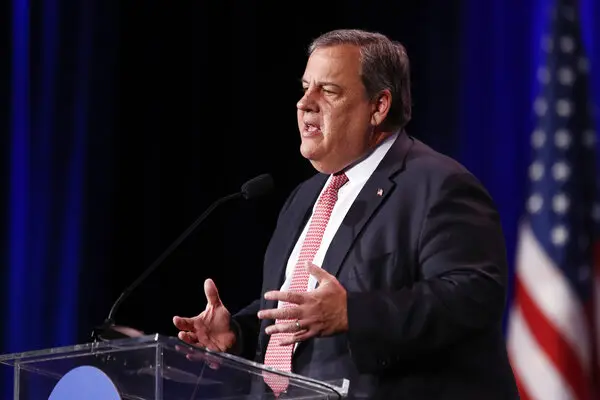
The political stage is often a theater of predictability, with candidates reiterating familiar stances and echoing party sentiments. However, the recent GOP presidential debate took an unexpected turn, courtesy of former New Jersey Governor Chris Christie. His remarks on Trump’s indictments were not just surprising; they were a deviation from the expected narrative, raising eyebrows and sparking intense discussions.
The debate, held in anticipation of the 2024 elections, was a crucial platform for Republican candidates to voice their visions and allegiances. As the evening progressed, a pattern emerged. Most candidates, in line with party sentiment, showcased their unwavering support for former President Trump. Their words were filled with the usual political rhetoric, echoing sentiments that have become synonymous with the party’s stance in recent years.
But as Christie took the microphone, the atmosphere shifted. There was an air of anticipation. Known for his forthright views and no-nonsense approach, Christie did not disappoint. Addressing the topic of Trump’s indictments, he ventured into territory few had dared to tread.
Rather than offering blanket support, Christie hinted at deeper issues within the party. He spoke of the dangers of “”normalizing”” certain behaviors and the need for the party to reflect on its core values. “”Where are we headed as a party?”” he seemed to ask. “”Is unwavering support, even in the face of controversy, truly in our best interest?””
His words, while measured, were met with a mix of reactions. Some audience members nodded in agreement, valuing Christie’s willingness to address the elephant in the room. Others, however, were visibly displeased. Boos and murmurs filled the hall, a testament to the divisive nature of his comments.
But what prompted Christie’s unexpected stance? The answer lies in the broader political landscape. The era of Trump, while marked by significant achievements, has also been riddled with controversies. Allegiances have been tested, divisions have deepened, and the party stands at a crossroads. In such a climate, Christie’s call for introspection is both timely and relevant.
He went on to draw parallels between the actions of former Vice President Mike Pence on January 6 and Trump’s alleged constitutional violations. While Pence was lauded for his adherence to the constitution, questions were raised about Trump’s decisions. This juxtaposition further emphasized Christie’s central message: the need for the party to evaluate its stance and direction.
As the debate concluded, Christie’s comments became a focal point of discussions. Political analysts dissected his words, colleagues debated his perspective, and the public was left contemplating the future trajectory of the Republican party. Was Christie’s stance a reflection of a broader shift within the party, or was it an isolated viewpoint? The coming months will provide answers.
In conclusion, the GOP presidential debate was not just another political event. It was a mirror reflecting the current state of the Republican party. Christie’s unexpected comments, while controversial, have ignited a crucial conversation about the party’s future. As the GOP navigates the complexities of the post-Trump era, introspection, as suggested by Christie, might be the first step towards charting a clear and unified path forward.
Source Trending Politics

